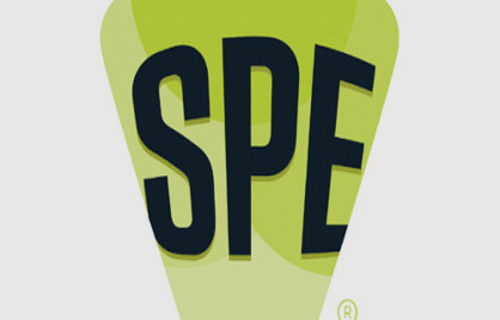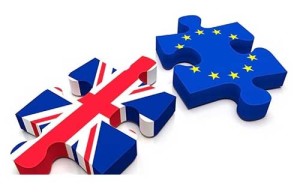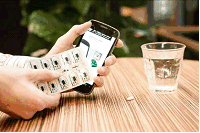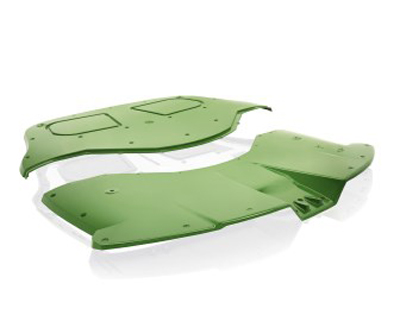Brand owners are still on the hunt for a bottle that will satisfy requirements for a plastic-free solution. It’s interesting to see all these CPGs struggle to get away from plastic — via the “paper” bottle, for example. Yet, try as they might, they just can’t seem to leave plastic behind.
Last summer, when paper bottle announcements were trending, I wrote a rather long blog about the various paper bottles that were coming to market. It seemed that major brand owners were convinced that paper bottles would be the escape route from plastics. However, one thing that paper bottles and other fiberboard containers require in order to hold in their contents is a plastic liner. Brand owners don’t like to talk about that, so I usually don’t get a response when I inquire about plastic liners for paper or fiberboard bottles and containers.
Recently, Axel Barrett — founder of UK-based Bioplastics News — went through an exercise of reviewing all the paper bottles that have been developed since 2011 in an effort to convince himself that paper really could be a solution for a plastic-free container or bottle. In “The Paper-Bottle Fairy Tale,” published on Feb. 15, 2021, Barrett shared his conclusion that “PET bottles are the only existing example of bottle-to-bottle mechanical recycling at industrial scale. A PET bottle can be recycled into a new 100% PET bottle. Why would you want to replace this?”
Why indeed? Yet brand owners keep trying to get themselves out from under the dark cloud of abominable plastics and stand in the bright sunlight of “sustainability” by using any material other than plastic, no matter how many resources and how much energy it takes to produce. On Aug. 5, 2020, I wrote a blog, “Paper Bottle Coming Soon to a Liquor Store Near You,” and on Oct. 27, 2020, Rick Lingle interviewed a market analyst from Lux Research on the attempts to make paper green: “Are Paper Bottles Sustainable and Practical?”
Barrett wrote that he used to think that paper was a sustainable material, but after looking into it, he’s “not so sure anymore.” One thing Barrett is adamant about is that CPGs should only use recycled and recyclable resources. “No trees should be cut down for the paper bottle industry. Not a single one,” stated Barrett emphatically.
I think that Jon Huntsman Sr. would absolutely agree with Barrett’s conclusion, and, again, I quote Huntsman: “Use old dinosaurs, not new trees.”
Paper bottles and food containers that are promoted by brand owners as “plastic free” is just another example of greenwashing. And the CPGs are not being truthful because it takes a plastic liner to keep the contents from soaking through the paper. I don’t know anyone who wants to waste good booze because of a leaky bottle!
Glass continues to be used for many types of bottles, but glass is energy-intensive to produce, heavy to transport, and requires extensive packaging to prevent breakage. Additionally, silica sand used to make glass is in short supply, making recycled glass important despite the energy required to melt the glass.
Still, the effort, time, and money spent on, thus far, vain attempts to replace plastic with paper bottles or fiberboard containers is ongoing. The major brand owners such as Coca-Cola and L’Oreal continue to ignore the science and countless LCAs that have shown plastic to be the superior and, in fact, “greener” material.
Take the latest press release from GlobalData regarding Absolut Vodka’s new paper bottle, which promises to “revitalize declining paper and board (P&B) packaging type in Western Europe’s spirit segment.” After a long testing period, the launch of the prototype Absolut Paper is set to revise “traditional perceptions around paper and board packaging for spirits in the UK,” according to GlobalData, a data and analytics company.
GlobalData’s release went on to praise “environmentally conscious consumers” and how successful the launch is likely to be due to “the alignment with green trends.”
GlobalData did acknowledge that the use of P&B for spirits “declined in Western Europe by 9.1% between 2019 and 2020 to one million units. However, “sustainable production and eco-conscious consumption remain highly sought-after concepts to the modern-day consumer.” Volume declines were attributed to consumers’ preference for glass packaging in spirits, “but this launch has the potential to alter current consumer perceptions of this packaging material.”
However positive that sounds, the idea of a “plastic free” bottle still manages to elude even the most hopeful brand owners. “Absolut Paper comprises 57% paper and 43% recycled plastic . . . however, production process transparency will need to be addressed. Currently, paper packaging requires a higher volume mass than glass or plastic alternatives to ensure the beverage is effectively preserved,” noted GlobalData, adding that “this potentially equates to higher energy use even though the material is more environmentally friendly.”
Really? How many trees were cut down in the making of these bottles? I guess nobody is counting.
References : https://www.plasticstoday.com/packaging/paper-bottles-are-not-sustainable-alternative-plastic-bottles







